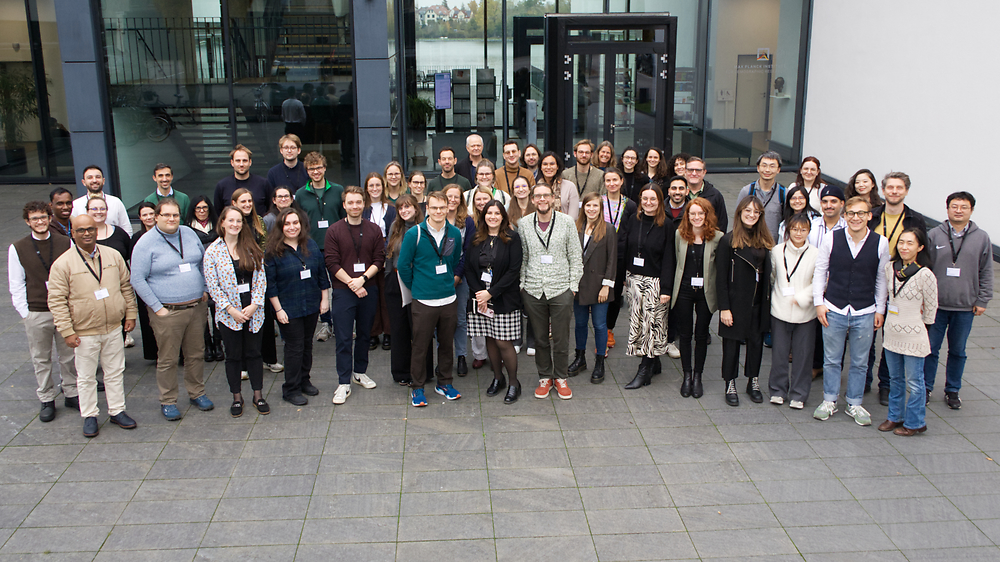November 19, 2024 | News | Workshop
Demystifying Machine Learning for Population Researchers
More than 50 researchers from different fields of population sciences at the MPIDR
The Max Planck Institute for Demographic Research organized a workshop to clarify the goals, techniques, and applications of machine learning methods for population research. The machine learning theme continues on 25 February with a Süßmilch lecture by Vanessa Didelez.

The participants of the workshop on demystifying machine learning for population researchers. © MPIDR/Schulz
On 5 and 6 November, the Max Planck Institute for Demographic Research (MPIDR) in Rostock hosted a workshop to demystify machine learning for population researchers, organized by Angela Carollo, Aapo Hiilamo and Mikko Myrskylä. For population researchers, machine learning methods are useful not only for predicting population dynamics but also as tools to improve causal inference tasks. The organizers brought together more than 50 researchers from different fields of population sciences, such as population health, formal and social demography, public health and economics, among others.
"We are very pleased with the way workshop went. I learned a lot from all the very interesting presentations. I am looking forward to using machine learning methods in my future research to answer questions in family demography and fertility," says Angela Carollo.
The workshop consisted of two keynote talks, contributed sessions, a poster session, a tutorial and panel discussion. The first keynote lecture titled “Machine Learning for Population Inference” was delivered by Ian Lundberg from UCLA. He discussed how machine learning can help estimate population and subpopulation means when some data are sparse or missing. Jennie E. Brand from UCLA delivered an online keynote talk titled “Causal Inference and Machine Learning for Social Science”. She reviewed recent advances in methods for causal inference and then focused on approaches for assessing effect heterogeneity.
Thematically allocated contributed sessions showcased the applications of machine learning, for example, in fertility, mortality, health and migration. A session on methods and one on causal inference additionally brought to the audience some new advancements in the field. On the first day of the workshop 15 posters on a wide range of topics were presented.
The workshop concluded with a panel discussion on the challenges and future opportunities of machine learning. Irena Chen from MPIDR, Matti Nelimarkka from University of Helsinki and Ian Lundberg discussed, among other topics, whether and how machine learning should be incorporated into the teaching curricula.
“It will be interesting to see, in a few years, whether the field of demography embraces some of the machine learning methods discussed in the workshop, and whether this will contribute to new substantial advancements in population sciences,” says Angela Carollo.
The machine learning theme continues at MPIDR on 25 February when Vanessa Didelez from the Leibniz Institute for Prevention Research and Epidemiology will deliver a Süßmilch lecture titled “Expert-driven versus Data-driven Causal Graph Selection in Epidemiology”.